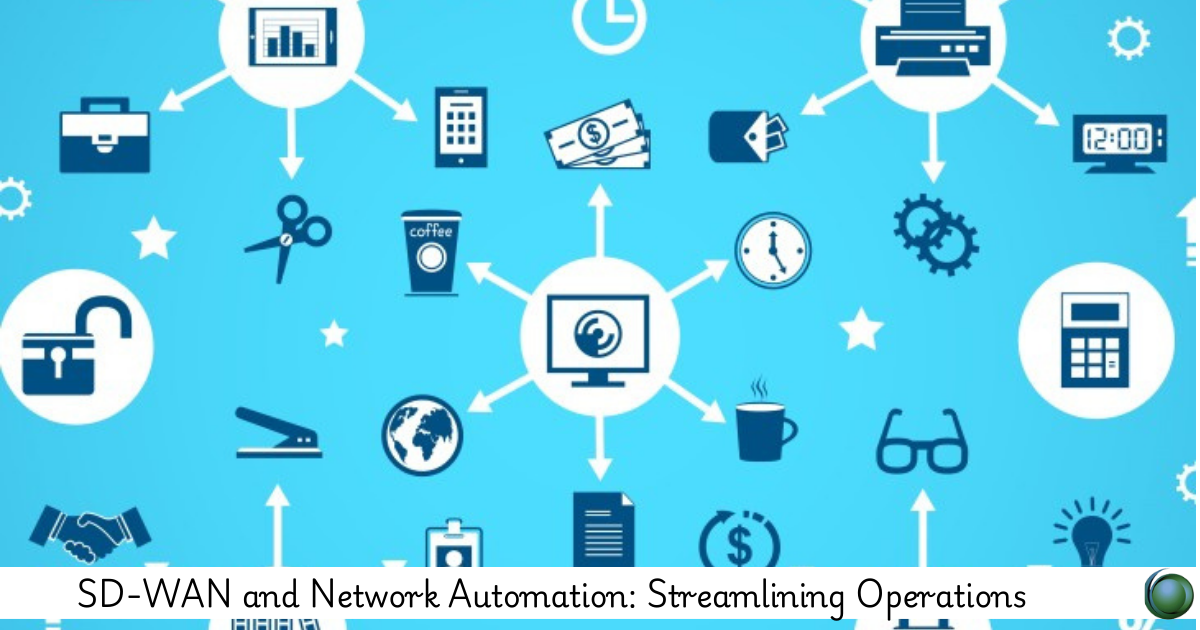Description
Introduction on Network Automation
As enterprises scale their networks, managing complex, diverse, and dynamic infrastructures becomes increasingly challenging. Software-Defined Wide Area Networks (SD-WAN) have revolutionized the way organizations approach network management, and when combined with network automation, they enable organizations to streamline operations, enhance efficiency, and reduce human intervention. This course delves into the integration of this technologies, demonstrating how they can work together to simplify operations, improve network performance, and provide real-time adaptability.
Prerequisites
- Basic understanding of SD-WAN concepts and components.
- Familiarity with network management principles and protocols.
- Knowledge of automation technologies such as Ansible, Puppet, or Chef is beneficial but not mandatory.
Table of Contents
1. Introduction
1.1 Overview of SD-WAN Technology
1.2 Network Automation Fundamentals
1.3 The Role of Automation in SD-WAN Deployment
1.4 Benefits of Combine
2. Key Concepts
2.1 SD-WAN Architecture and Key Components
2.2 Automation Technologies and Frameworks
2.3 Network Operations Automation: Simplifying Network Management
2.4 Automation Tools in SD-WAN Environments
3. Automating SD-WAN Deployment and Configuration
3.1 Automating the Provisioning of SD-WAN Devices(Ref: Integrating SD-WAN with Legacy WAN Architectures)
3.2 Configuration Management and Simplified Network Rollouts
3.3 Automation Tools for SD-WAN Configuration
4. Dynamic Path Selection and Traffic Steering through Automation
4.1 Leveraging Automation for Dynamic Traffic Routing
4.2 Automated Path Selection Based on Network Performance
4.3 Real-Time Monitoring and Adjustments via Automation
4.4 Integrating Application-Aware Routing with Automation
5. Enhanced Security
5.1 Automating Security Policies in SD-WAN
5.2 Network Segmentation and Zero Trust Architectures
5.3 Integrating SD-WAN with Security Automation Tools
5.4 Automating Threat Detection and Response
6. Automating SD-WAN Performance Monitoring and Optimization
6.1 Continuous Performance Monitoring in Automated SD-WAN Environments
6.2 Traffic Shaping and Quality of Service (QoS) Automation
6.3 Automating Load Balancing and Redundancy
6.4 Root Cause Analysis and Automated Issue Resolution
7. Multi-Cloud Environments
7.1 Connecting SD-WAN with Multi-Cloud Networks
7.2 Automation for Cloud-to-Cloud Traffic Optimization
7.3 Integrating SD-WAN and Cloud Security Automation
7.4 Managing Hybrid and Multi-Cloud Architectures with SD-WAN Automation
8. SD-WAN for SDN and NFV Integration
8.1 Software-Defined Networking (SDN) and SD-WAN Synergies
8.2 Automating Network Functions Virtualization (NFV) in SD-WAN
8.3 Benefits of SD-WAN in NFV Environments
8.4 Orchestrating SD-WAN, SDN, and NFV with Network Automation
9. Automating SD-WAN Scaling for Growing Enterprises
9.1 Automation in Scaling SD-WAN Architectures
9.2 Orchestration of Multi-Site SD-WAN Networks
9.3 Handling Traffic Spikes and Performance Fluctuations with Automation
9.4 Ensuring Seamless Scaling in Cloud and Hybrid Environments
10. Case Studies: Real-World Applications of SD-WAN and Automation
10.1 Case Study 1: Automating SD-WAN Deployment in a Global Enterprise
10.2 Case Study 2: Dynamic Traffic Steering and Load Balancing for Performance Optimization
10.3 Case Study 3: Securing SD-WAN Networks with Automation
10.4 Case Study 4: Multi-Cloud Connectivity and Automation with SD-WAN
11. Best Practices for this Integration
11.1 Key Considerations for Successful SD-WAN Automation Implementation
11.2 Automation Tools and Platforms: Which One to Choose?
11.3 Common Pitfalls and How to Avoid Them
11.4 Continuous Improvement and Automation Feedback Loops
12. Conclusion on Network Automation
12.1 Final Thoughts on Network Automation
12.2 The Future of SD-WAN Automation in Next-Gen Networks
12.3 Steps to Begin Automating SD-WAN in Your Organization
Integrating this offers numerous advantages for modern enterprises, particularly in terms of scalability, performance optimization, and simplified network management. By automating the deployment, configuration, traffic routing, and security aspects of SD-WAN, organizations can ensure a more agile, resilient, and cost-effective network. The combination of SD-WAN and automation enhances the network’s ability to respond to dynamic demands, reduces human error, and supports real-time decision-making. As enterprises continue to expand their networks, leveraging automation will be a key enabler for sustained growth and seamless user experiences.







Reviews
There are no reviews yet.